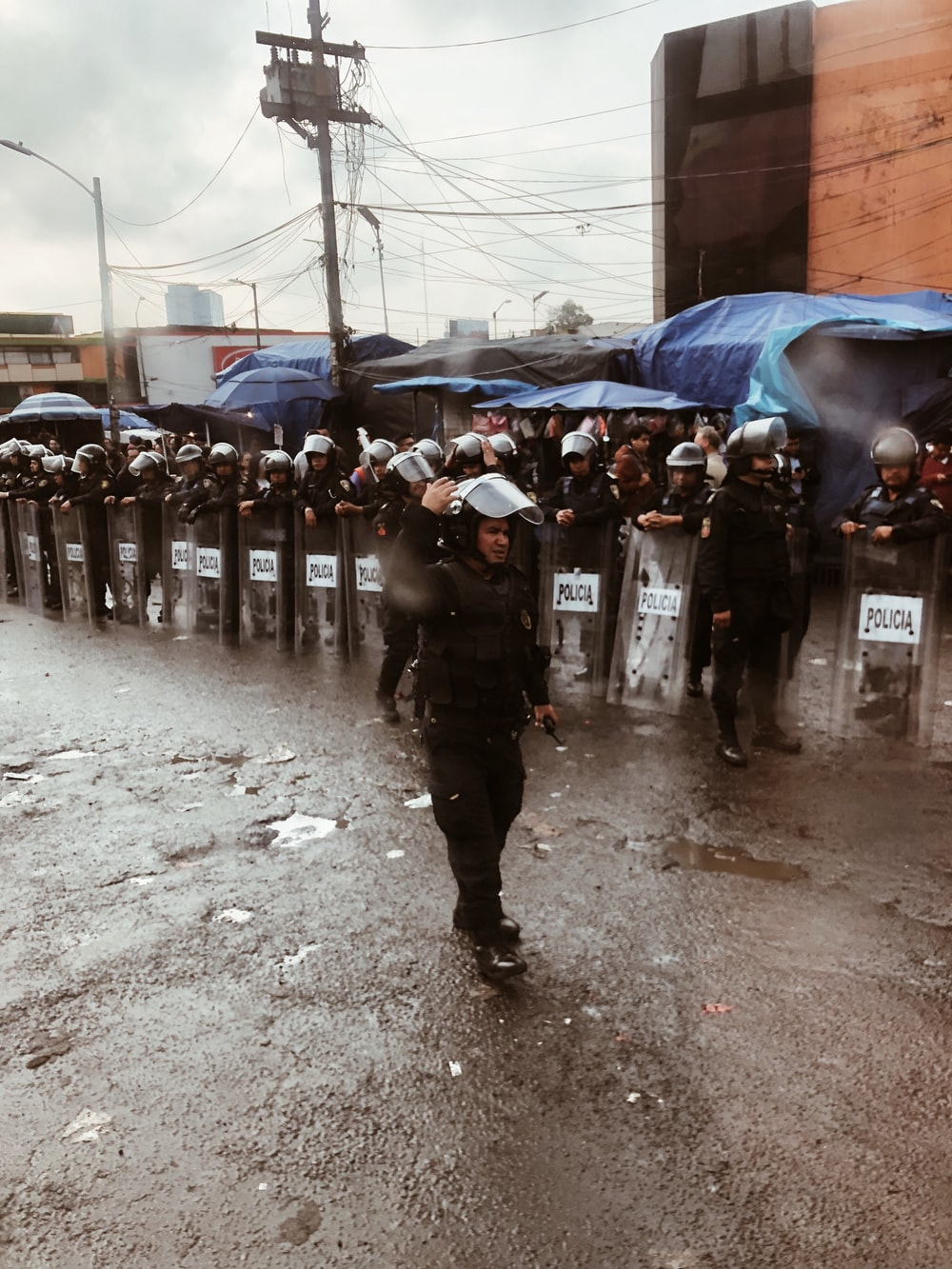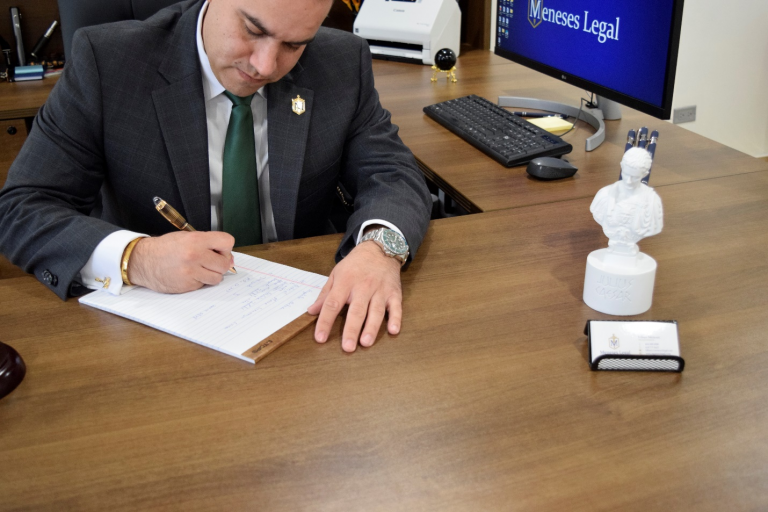Nueva Justicia: How Mexico’s Criminal Justice System Has Evolved Since 2008
Did you know Mexico’s current adversarial criminal justice system has only been around for 14 years? It was introduced to replace the old inquisitorial system that had numerous flaws. Federal authorities, districts, and states in Mexico were given eight years to adapt to the new criminal justice system because it marked a substantial overhaul of the country’s laws and judicial practices. But what are the main differences between Mexico’s old and new criminal justice systems? And how has the system evolved since the inception of the adversarial system?
Here’s a detailed breakdown of how Mexico’s criminal justice system has evolved since 2008.
The Old Criminal Justice System

How Did it Function?
Mexico’s previous criminal justice system was largely inquisitorial. This meant that the judge was responsible for organizing and analyzing written evidence put forward by the prosecution and defense in court. Oral testimonies were rarely cross-examined, and it was common for defendants to be incarcerated immediately after being arrested without evidence. Moreover, defendants were rarely given the chance to exercise their right to legal counsel.
The old criminal justice system in Mexico gave rise to numerous cases of corruption and due process violations. Legal proceedings were slow due to the abundance of red tape and sentences were given out without debate. In some instances, judges handed their responsibilities to their secretaries which enabled prosecutors to dominate court proceedings regularly.
The Prosecution Dominated Court Proceedings
Have you heard of the term “innocent until proven guilty?” This is a legal principle known as the presumption of innocence and was endorsed under Mexico’s old criminal justice system. Yet the old system operated in such a way that defendants were more often treated as “guilty until proven innocent” instead! In simpler words, prosecutors had far more control over court proceedings than defense lawyers under Mexico’s old criminal justice system.
The old criminal justice system in Mexico made it easy for prosecutors to fabricate testimonies and plant evidence to rack up convictions. Additionally, defendants were rarely given the chance to participate in court hearings as they were placed in holding cells separate from the judge and attorneys. While it was legal for a defendant’s family and friends to attend the hearing under the old system, court proceedings took place in offices as opposed to actual courts. This meant that any party in support of a defendant had to sit far away and couldn’t offer their support. All these factors gave prosecutors far more power than defendants during trials under Mexico’s old criminal justice system.
The Police Had a Predominantly Correctional Role

Imagine living in a country where the police don’t do any investigative work. That’s what Mexico was like before 2008! The role of the police in Mexico’s old criminal justice system was corrective as opposed to investigative. In other words, the police were primarily tasked with making arrests, transporting convicts, and imposing orders instead of uncovering evidence and contributing to court proceedings. They were also used by powerful people such as political figures to coerce people into doing their bidding.
Unfortunately, the police’s limited role under Mexico’s previous criminal justice system meant they rarely received training and equipment on how to carry out investigative tasks. This made them susceptible to numerous unethical practices including corruption, bribery, and a willingness to use violent torture techniques during interrogations. Before the introduction of programs like the Merida Initiative, the police were also severely underfunded.
It was also common for police officers to put defendants into prisons full of convicts while waiting for the outcome of trials. In other words, countless innocent people were being detained by the police without evidence under the old criminal justice system. Some of these people would find themselves in jail for substantial periods due to the police’s negligence and the slow rate of criminal proceedings under the old criminal justice system.
Written Affidavits Were Vital
If you’ve ever seen a TV show about lawyers, chances are you’ve seen scenes where they’re making rousing arguments in court. While it’s legal for attorneys to do this under Mexico’s current criminal justice system, it’s not how things worked in the old one!
Written affidavits were the main source of evidence used in court under Mexico’s old criminal justice system. These were documents attorneys passed to judges that contained all the evidence and facts related to the case. Unfortunately, hearings were often prolonged because the written affidavits submitted to the judge under the old criminal justice system were lengthy, unreliable, and disorganized. The prosecution had no problem waiting for judges to go through these documents. However, the defendants paid a steep price as they faced lengthy pre-trial incarcerations while judges went through the process of organizing, reading, and analyzing the affidavits.
Coerced Confessions Were Prevalent
If you ask the average joe what they think about coerced confessions, chances are they’ll tell you it’s unethical. Yet this was common practice under the old criminal justice system of Mexico!
It was normal for prosecutors to pay corrupt members of Mexico’s police to force defendants into confessing so they could be convicted as soon as possible. Confessions were often obtained without allowing the defendant through morally questionable torture techniques.
The New Criminal Justice System
How Does It Function?
The new criminal justice system in Mexico is known as an adversarial system. In this system, judges are primarily responsible for sentencing, while attorneys drive court proceedings by taking turns to present their arguments. Additionally, the presumption of innocence is stronger under the new system and pretrial incarceration rates have dropped substantially. Trials have become shorter, defendants are given the chance to request help from criminal defense lawyers, and court proceedings take place in actual courts where defendants’ families and friends are invited during trials.
The Police Have an Investigative Role

If you’re living in the United States, you might’ve heard that detectives hold a higher rank than regular police officers. This is because the police’s primary role in the US is to investigate crimes and unearth facts that can be used in court. The role of the police under Mexico’s new criminal justice system is similar.
The new criminal justice system requires police officers to act as first-responders in the event of a crime. They’re given the training and preparation necessary to carry out forensic analysis, transport evidence securely, and work alongside prosecutors rather than for them. Unfortunately, there are still instances of police officers in Mexico accepting bribes and coercing defendants to confess to crimes without evidence. However, it’s more difficult for a police officer to do this without getting caught under the new criminal justice system than in the old system.
Judges Maintain the Power Balance Between Defendants and Prosecutors

Have you ever wondered why judges aren’t given as many responsibilities under the new criminal justice system in Mexico as opposed to the old one? One of the reasons is to encourage them to be present during hearings rather than get an assistant to fill in on their behalf. This has brought prestige back to the role of the judge and helped restore order to court proceedings that were once controlled by prosecutors.
Judges are also able to pay more attention during trials under the new criminal justice system. They spend less time looking through lengthy affidavits and more time concentrating on the arguments presented by the plaintiff and defendant’s attorneys. In simpler words, judges are now mainly responsible for maintaining the balance of power between defendants and prosecutors.
Evidence is Presented in Multiple Formats
The days of presenting evidence in bulky written affidavits are gone! The new criminal justice system makes it mandatory for attorneys to submit physical evidence to the court rather than a written summary. This reduces the likelihood of evidence fabrication and prevents judges from wasting their time organizing paperwork.
If the defendant or plaintiff’s attorneys wish to submit new evidence under the current criminal justice system, they must organize and submit all the relevant paperwork themselves.
Oral Trials Are Now Prevalent
The new criminal justice system has also given rise to oral trials that rely more on verbal arguments made by each side rather than written documents. This makes it easier for judges to hear multiple perspectives of the facts in a case.
Oral trials also consist of live witness testimonies that are subject to cross-examinations. Put simply, attorneys on both sides of a criminal case in Mexico are now given the chance to question the other side’s witnesses. This is extremely important because it allows attorneys to show the judge why the other side’s argument is flawed.
Court Reporting is Now Conducted Digitally
If we asked you to take notes during a fast-paced court hearing, would you be able to do it accurately? If you’re great at writing and listening at the same time, it might be possible. But what if we gave you a voice recorder—would your note-taking skills improve? We’re willing to bet the answer’s yes!
Fortunately, court reporting under Mexico’s new criminal justice system is done using audio and/or video equipment. This keeps court officials honest and prevents court transcripts from being manipulated to favor one party over the other.
Courts Are More Streamlined Due to Pleas
Would you rather go to trial or settle out of court? This is a choice defendants never had the chance to consider under Mexico’s old criminal justice system! In contrast, it’s increasingly common for defendants and plaintiffs to arrange out-of-court settlements under the new criminal justice system.
With fewer cases going to trial, Mexican courts are less burdened—and therefore, more streamlined—than before. In other words, criminal cases are resolved far more quickly, and pre-trial detentions are far less common under the new criminal justice system.
Summary
Mexico’s criminal justice system has evolved to ensure both defendants and plaintiffs have an equal footing in court proceedings. Police are now trained to conduct investigative tasks and play a much bigger role in the delivery of justice than before. In addition, witnesses can be openly questioned and all parties—including the victim—are allowed to make statements throughout the trial.
Under the new system, court reporting is more accurate, and the judge’s role has changed from sifting through evidence to maintaining order. With that said, it’s interesting to note that Mexico’s criminal justice system rarely uses jury panels to determine the outcome of a trial. In contrast, a panel of judges decides the fate of the defendant in Mexico’s courts.
Unfortunately, Mexico’s current criminal justice system continues to be undermined by rampant corruption. Many believe the hardline approach of the old criminal justice system was necessary to disincentivize violent crimes. However, the old system was also marred by corruption and encroached on the rights of defendants in unacceptable ways.
It’s important to remember that Mexico’s criminal justice system is still evolving. When the reforms were first announced in 2008, experts believed they would take eight years to complete because of the extent of reforms required. There was a fundamental shift in the roles of everyone from the police to judges and attorneys under the new criminal justice system. Fast-forward to the present and the system continues to evolve even though it’s been six years since the deadline elapsed.

If you’re looking for a cross-border criminal lawyer in Tijuana who has ample knowledge of Mexico’s current criminal justice system, look no further than Meneses Legal.
Meneses Legal’s team of criminal defense lawyers leaves no stone unturned to defend clients charged with drug, firearms, homicide, sexual assault, and contraband trafficking charges. They’re regularly praised by their clients and have earned the respect of countless clients by providing a top-class legal service in Tijuana.
Contact them today to learn more about what makes them a top cross-border crimes attorney in Tijuana.








